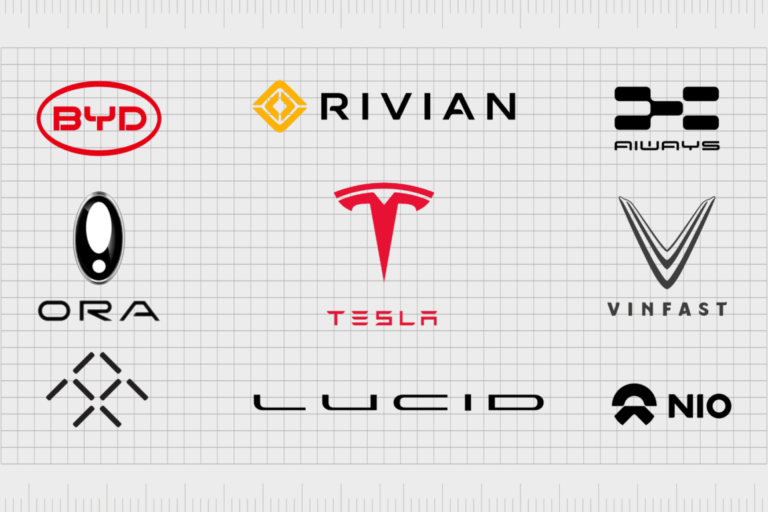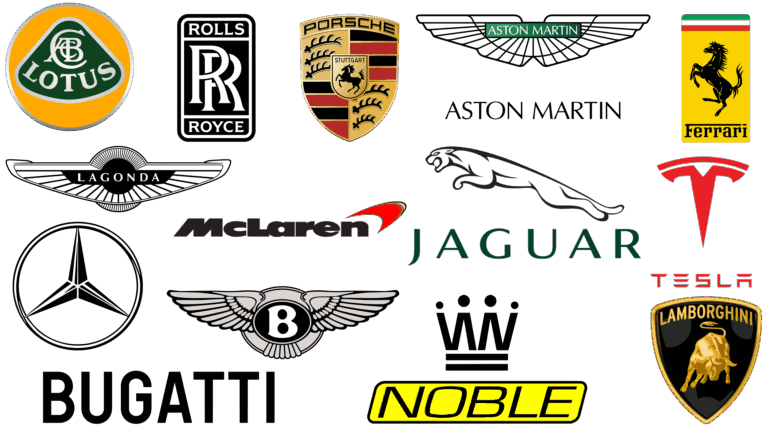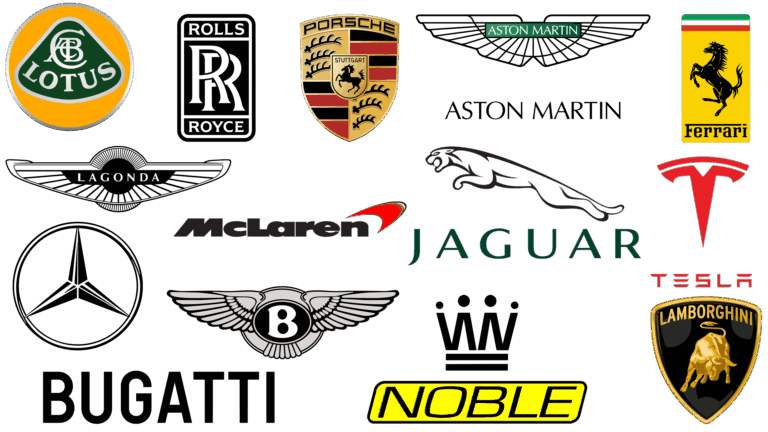Reliable Luxury Car Brands: The Ultimate Guide to Enduring Elegance
Reliable Luxury Car Brands: The Ultimate Guide to Enduring Elegance cars.truckstrend.com
In the realm of automotive excellence, the term "luxury car" instantly conjures images of opulent interiors, powerful engines, cutting-edge technology, and unparalleled comfort. Yet, beneath this glossy veneer of prestige, a critical question often surfaces: how reliable are these sophisticated machines? For many discerning buyers, the true measure of luxury isn’t just the initial thrill of ownership, but the enduring peace of mind that comes from a vehicle that performs flawlessly, day in and day out, without constant trips to the service center. This is where the concept of "reliable luxury car brands" becomes paramount. It’s about finding that sweet spot where exquisite craftsmanship meets steadfast dependability, ensuring your investment delivers not just status, but also hassle-free enjoyment for years to come.
Understanding reliability in the luxury segment is crucial because these vehicles often incorporate complex systems and advanced materials that can, if not meticulously engineered and manufactured, lead to higher maintenance costs and unforeseen issues. A truly reliable luxury car minimizes these concerns, offering a seamless blend of performance, comfort, and longevity, thereby enhancing its overall value and the ownership experience.
Reliable Luxury Car Brands: The Ultimate Guide to Enduring Elegance
What Defines Reliability in Luxury Cars?
Reliability, particularly in the luxury segment, extends far beyond merely "not breaking down." It encompasses a holistic set of attributes that contribute to a consistently positive ownership experience. These include:
- Consistent Performance: The vehicle starts, runs, and operates as expected every time, with no unexpected hiccups or warning lights.
- Low Frequency of Repairs: Fewer unscheduled visits to the mechanic are a hallmark of reliability.
- Minimal Cost of Ownership (beyond depreciation): While luxury cars inherently have higher maintenance costs due to specialized parts and labor, a reliable luxury car avoids excessive, unforeseen repair bills.
- Durability and Longevity: Components and systems are built to last, resisting wear and tear over many years and miles.
- Quality of Build: Tight panel gaps, robust materials, and meticulous assembly contribute to a car that feels solid and well-engineered.
- Seamless Technology Integration: Modern luxury cars are packed with advanced tech. Reliability means these systems work flawlessly and intuitively, without glitches or constant resets.
- Strong Resale Value: Reliable luxury cars tend to retain their value better, as their reputation for dependability makes them more desirable in the used market.

Ultimately, a reliable luxury car offers peace of mind, predictable expenses, and a consistent high-quality experience, truly embodying the essence of premium ownership.
The Paradox of Luxury and Reliability

The very nature of luxury often presents a fascinating paradox when it comes to reliability. Luxury vehicles push boundaries with:
- Cutting-Edge Technology: From complex infotainment systems and advanced driver-assistance features (ADAS) to air suspension and intricate climate control, more technology often means more potential points of failure.
- Exotic Materials and Engineering: Lightweight alloys, intricate engine designs, and bespoke interiors often require specialized knowledge and tools for repair, driving up costs.
- Performance Demands: High-horsepower engines, advanced transmissions, and performance-tuned suspensions operate under greater stress, potentially leading to faster wear if not perfectly designed and maintained.

However, the best luxury brands overcome this paradox through superior engineering, rigorous testing, stringent quality control, and a commitment to continuous improvement. They understand that true luxury includes the luxury of not worrying about your vehicle.
Top Contenders: Brands Known for Reliable Luxury
While reliability ratings can fluctuate year by year and model by model, certain luxury brands have consistently distinguished themselves for their commitment to dependability.
- Lexus: Often considered the gold standard for reliability in the luxury segment, Lexus (Toyota’s luxury division) consistently tops reliability surveys. Their vehicles are renowned for their meticulous build quality, durable powertrains, and relatively low maintenance costs compared to European rivals. Models like the RX, ES, and LS are prime examples of enduring quality.
- Acura: Honda’s luxury arm, Acura, benefits from its parent company’s reputation for engineering excellence and robust powertrains. While perhaps not as overtly luxurious as some German counterparts, Acura vehicles offer a compelling blend of performance, advanced technology, and unwavering reliability. The MDX and TLX are popular choices for their dependability.
- Genesis: Hyundai’s relatively new luxury marque, Genesis, has rapidly ascended the reliability rankings. Leveraging Hyundai’s commitment to quality and value, Genesis vehicles offer impressive luxury, technology, and performance, backed by a strong warranty and a growing reputation for solid dependability. The G70, G80, and GV70 have all garnered praise.
- Volvo: Historically known for safety and robust build quality, Volvo has made significant strides in reliability in recent years. While they might not lead every reliability chart, their modern vehicles, particularly the SPA platform models (like the XC60, XC90, and S60), are increasingly dependable, offering a unique blend of Scandinavian design, comfort, and advanced safety features.
- Porsche: Surprisingly for a high-performance luxury brand, Porsche consistently scores well in reliability surveys. This speaks volumes about their engineering precision and the robust construction of their vehicles, even those designed for thrilling performance. Models like the Macan and Cayenne, while expensive to maintain, are less prone to unexpected breakdowns than many might assume.
- Audi, BMW, and Mercedes-Benz: The German triumvirate, while offering unparalleled driving dynamics, prestige, and interior craftsmanship, often have a more mixed reputation for long-term reliability and cost of ownership. While modern iterations have improved significantly, their complex systems and higher parts/labor costs mean that "reliable" often translates to "expensive to maintain when something does go wrong." However, with diligent maintenance and care, many owners experience years of trouble-free driving.
Factors Influencing Luxury Car Reliability
Several key factors contribute to a luxury car’s long-term reliability:
- Design and Engineering Philosophy: Brands that prioritize durability and ease of maintenance during the design phase often produce more reliable vehicles. This includes choosing proven components and designing systems that are robust rather than overly complex.
- Manufacturing Quality Control: Strict quality checks throughout the production process, from sourcing materials to final assembly, are crucial in preventing defects and ensuring consistent build quality.
- Dealer Network and Service Quality: A strong, knowledgeable dealer network with skilled technicians and readily available parts is essential for addressing issues promptly and correctly, minimizing downtime.
- Availability and Cost of Parts: Even reliable cars need maintenance. Brands with a good supply chain for parts, especially common wear-and-tear items, and reasonably priced components, contribute to lower long-term ownership costs.
- Owner Maintenance Habits: This is perhaps the most significant factor within the owner’s control. Adhering to scheduled maintenance, using recommended fluids, and addressing minor issues promptly can dramatically extend a luxury car’s lifespan and reliability.
- Technology Integration: How well a brand integrates its sophisticated technology and ensures its longevity is key. Systems that are prone to software glitches or hardware failures can severely impact the perceived reliability, even if the core mechanicals are sound.
Tips for Buying a Reliable Luxury Car
Even when focusing on inherently reliable brands, smart buying practices can further ensure a positive experience:
- Research Specific Models and Years: Reliability can vary even within the same brand. Consult reputable consumer guides (e.g., J.D. Power, Consumer Reports, RepairPal) for specific model year reliability ratings and common issues. Forums and owner groups can also provide real-world insights.
- Get a Pre-Purchase Inspection (PPI): For used luxury cars, a thorough PPI by an independent, trusted mechanic specializing in luxury vehicles is non-negotiable. This can uncover hidden problems that aren’t apparent during a test drive.
- Review Service Records: A well-documented service history indicates diligent maintenance, a strong predictor of future reliability. Look for consistent servicing at recommended intervals.
- Consider Certified Pre-Owned (CPO): CPO programs offered by luxury dealerships provide a manufacturer-backed warranty and often involve a rigorous multi-point inspection, offering peace of mind similar to buying new.
- Understand Warranty Coverage: Whether new or CPO, know precisely what your warranty covers, for how long, and what exclusions apply. This is your primary safeguard against unexpected major repairs.
- Factor in Maintenance Costs: While the car itself might be reliable, parts and labor for luxury brands are inherently more expensive. Budget accordingly for routine maintenance and potential unforeseen repairs.
Maintaining Your Luxury Car for Longevity
Owning a reliable luxury car is a partnership. Your commitment to proper maintenance is crucial for maximizing its lifespan and ensuring continued dependability.
- Adhere to Service Schedules: Follow the manufacturer’s recommended maintenance schedule religiously. This includes oil changes, fluid checks, filter replacements, and scheduled inspections.
- Use Recommended Fluids and Parts: Luxury cars often require specific grades of oil, transmission fluid, and other consumables. Using anything less can compromise performance and longevity. Opt for genuine OEM (Original Equipment Manufacturer) parts when replacements are needed.
- Address Warning Lights Promptly: Don’t ignore dashboard warning lights. They are often early indicators of potential problems that can escalate into costly repairs if left unaddressed.
- Find a Reputable Mechanic: While dealership service centers are excellent, a trusted independent specialist familiar with your specific luxury brand can often provide high-quality service at a lower cost. Look for certifications and positive reviews.
- Practice Good Driving Habits: Smooth acceleration, gentle braking, and avoiding excessive idling or hard driving in cold weather can reduce wear and tear on vital components.
- Regular Cleaning and Detailing: Beyond aesthetics, regular cleaning, especially underneath the vehicle, can prevent rust and corrosion, preserving components.
Conclusion
The pursuit of a reliable luxury car is not a contradiction in terms, but rather a sophisticated quest for the best of both worlds: the indulgent comfort and advanced features of a premium vehicle, combined with the enduring peace of mind that comes from unwavering dependability. While brands like Lexus, Acura, and Genesis have consistently set benchmarks for reliability, it’s important to remember that informed decisions during the buying process and diligent maintenance throughout ownership are equally vital. By understanding what defines reliability, researching meticulously, and committing to proper care, you can ensure your luxury vehicle remains a source of pride and effortless enjoyment for many years to come. Investing in a reliable luxury car means investing in a driving experience that is not only opulent but also consistently serene.
Reliable Luxury Car Brands: Price Overview
Please note: Prices are approximate starting MSRPs for new entry-level models and can vary significantly based on trim, options, region, and market conditions. Used car prices depend heavily on age, mileage, condition, and demand.
| Brand | Reputation for Reliability | Common Entry-Level Model (New) | New Starting Price Range (USD) | Key Strengths |
|---|---|---|---|---|
| Lexus | Excellent: Consistently ranks highest in reliability surveys. | IS 300 / UX 250h | $35,000 – $40,000 | Unwavering dependability, high build quality, comfortable ride, strong resale. |
| Acura | Very Good: Strong reliability inherited from Honda. | Integra / TLX | $32,000 – $45,000 | Balanced performance, advanced tech, good value, lower long-term costs. |
| Genesis | Excellent/Rapidly Improving: Quickly gaining top reliability scores. | G70 / GV60 | $40,000 – $60,000 | Luxurious interiors, powerful engines, bold design, excellent warranty. |
| Volvo | Good/Improving: Known for safety, reliability has improved significantly. | S60 / XC40 | $42,000 – $50,000 | Class-leading safety, distinctive Scandinavian design, comfortable, robust build. |
| Porsche | Good (for a performance brand): Surprisingly robust for high-performance. | Macan / 718 Cayman | $60,000 – $70,000+ | Exceptional driving dynamics, high-quality engineering, surprising durability. |
| Audi | Good/Moderate: Can be reliable but higher maintenance costs. | A3 / Q3 | $36,000 – $40,000 | Sophisticated design, advanced technology, refined interiors, Quattro AWD. |
| BMW | Good/Moderate: Strong driving dynamics, but complex systems can mean higher repair costs. | 2 Series Gran Coupe / X1 | $38,000 – $45,000 | Engaging driving experience, powerful engines, luxury features, brand prestige. |
| Mercedes-Benz | Good/Moderate: Premium comfort and tech, but repairs can be costly. | CLA 250 / GLA 250 | $40,000 – $45,000 | Ultimate luxury, cutting-edge technology, plush interiors, iconic design. |
Frequently Asked Questions (FAQ) about Reliable Luxury Car Brands
Q1: Are luxury cars inherently less reliable than mainstream cars?
A1: Not necessarily. While luxury cars often incorporate more complex technology and specialized components, leading to potentially higher repair costs when issues arise, many luxury brands (especially Japanese and Korean ones like Lexus, Acura, and Genesis) consistently rank among the most reliable vehicles on the market. The key is to choose a brand and model known for its dependability and to adhere to a strict maintenance schedule.
Q2: Which luxury brand is generally considered the most reliable?
A2: Lexus consistently holds the top spot for reliability in the luxury segment across various independent surveys (like J.D. Power and Consumer Reports). Their vehicles are renowned for their long-term durability and low incidence of mechanical issues. Acura and Genesis are also strong contenders for reliability.
Q3: Is it more expensive to maintain a reliable luxury car?
A3: Yes, generally. Even a reliable luxury car will have higher maintenance costs than a mainstream vehicle. This is due to several factors: specialized parts, advanced fluids, more complex systems requiring specialized diagnostic tools, and higher labor rates at luxury dealerships or independent specialists. However, a reliable luxury car will have fewer unplanned repair expenses, which can save money in the long run compared to an unreliable one.
Q4: Should I buy a new or used reliable luxury car?
A4: Both have pros and cons. A new reliable luxury car offers the latest features, full warranty coverage, and the assurance of being the first owner. A used reliable luxury car can offer significant savings on the initial purchase price, but it’s crucial to research its history, get a pre-purchase inspection, and understand any remaining warranty coverage. Certified Pre-Owned (CPO) programs often offer a good middle ground, combining some of the benefits of new car ownership with the cost savings of used.
Q5: How do I check a luxury car’s reliability before buying?
A5:
- Consult Reliability Ratings: Check annual reliability surveys from reputable organizations like J.D. Power, Consumer Reports, and RepairPal.
- Read Owner Reviews: Look for long-term reviews and common complaints on automotive forums and owner groups specific to the model you’re considering.
- Review Service Records: If buying used, insist on a complete service history to see if the car has been consistently maintained.
- Get a Pre-Purchase Inspection (PPI): Have an independent mechanic (ideally one specializing in luxury vehicles) thoroughly inspect the car for any existing or potential issues before purchase.
- Check for Recalls: Verify if there are any open recalls for the specific model and year.






